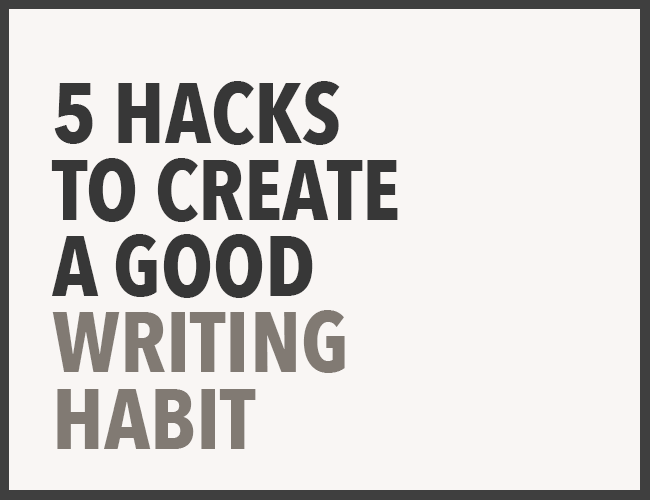
5 Hacks to Create a Good Writing Habit
One would-be writer asked me recently, “How do you stick with your writing plans for more than a week?” It’s a great question, and one that I asked myself for about a decade as I slowly made my way from wannabe writer to full-time writer.
How do you write consistently? Even when you’re busy? Even when you lose your motivation to write?


